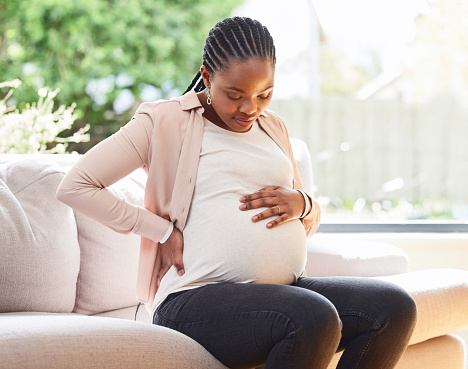You can experience difficulties sleeping at any point during your pregnancy. Yet,
most expectant moms experience it during the second trimester, leading into the
third. Many times, you may notice that insomnia begins due to increasing pregnancy
symptoms and a large baby belly; both of which make it tough to get comfortable in
bed.
Insomnia isn’t just limited to the latter part of pregnancy, though. There are plenty
of first-trimester woes that can also keep you from your cozy bed and peaceful
sleep. These issues can include morning sickness, which occurs at any time of the
day, and the constant need to pee.
Let’s take a closer look at when pregnancy insomnia starts and
how long it lasts.
When Does Pregnancy Insomnia Start?
As we mentioned, insomnia can begin anytime after conception but generally peaks
during the latter portion of the pregnancy when other symptoms intensify. Still,
it’s not uncommon for women to start experiencing insomnia as few as six to seven
weeks into the pregnancy. Exactly when yours may begin will depend on the root
cause, which also changes as the pregnancy progresses.
Insomnia in Early Pregnancy
If you begin to experience insomnia in the first trimester, it’s most commonly due to
a hormone shift. This can also cause nausea, vomiting, and constant urination. These
disruptions affect your body’s natural sleep and wake cycles. So, when insomnia
happens in early pregnancy, it usually makes it harder for the woman to stay asleep
more so than fall asleep.
Insomnia in the Third Trimester
Insomnia in late pregnancy is commonly caused by the discomfort from worsening
pregnancy symptoms and anxiety about the baby’s birth. Between the baby’s weight and
a large bump, you may notice that it’s harder to find a comfortable lying position.
And let’s not forget the pregnant moms who lie in bed at night worrying about labor
and how it will play out.
How Long Does Insomnia Last During
Pregnancy?
Pregnancy insomnia usually comes and goes in waves, but for some, it lasts the entire
nine months. There is some good news, though. It’s been shown that some women who
experience sleepless nights in their first trimester find that it improves by their
second. This is mainly due to the stabilization of hormone production in the body.
By the time many women reach the third trimester, they find it very difficult to
sleep. You’ll probably find that the larger your belly and baby grow, the harder it
is for you to get comfortable. The only thing you can really do is turn over and
sleep a few more hours. Still, when you add in the bladder that must be emptied
every few hours, don’t expect this problem to disappear until after your baby
arrives.
Can Insomnia Indicate Pregnancy?
While experts agree that insomnia can be an early pregnancy sign, it’s usually not
the first thing women notice. For most expectant mothers, insomnia shows up later in
the pregnancy once they already know they’re pregnant.
Can Insomnia in the First
Trimester Predict Baby’s Sex?
Have you heard the old wives’ tale that says you’re having a girl when you experience
insomnia early in pregnancy? Though this may be what you want to hear, don’t be so
quick to believe the claim. It’s not backed by research or facts.
What is true is that most of these tales are rooted in interpretations of how the
body responds to hormone production during pregnancy. However, it’s been found that
this process affects different women differently. For example, you may find one
woman who craves salty snacks while others want sweet foods. Likewise, some women
may experience insomnia for the duration of pregnancy, and others may not be
bothered at all. This has nothing to do with the baby’s sex, though. It’s more a
matter of how your body responds to these hormonal increases. Suffice it to say just
because you have insomnia six weeks into your pregnancy doesn’t mean you’re going to
be blessed with a little girl.






